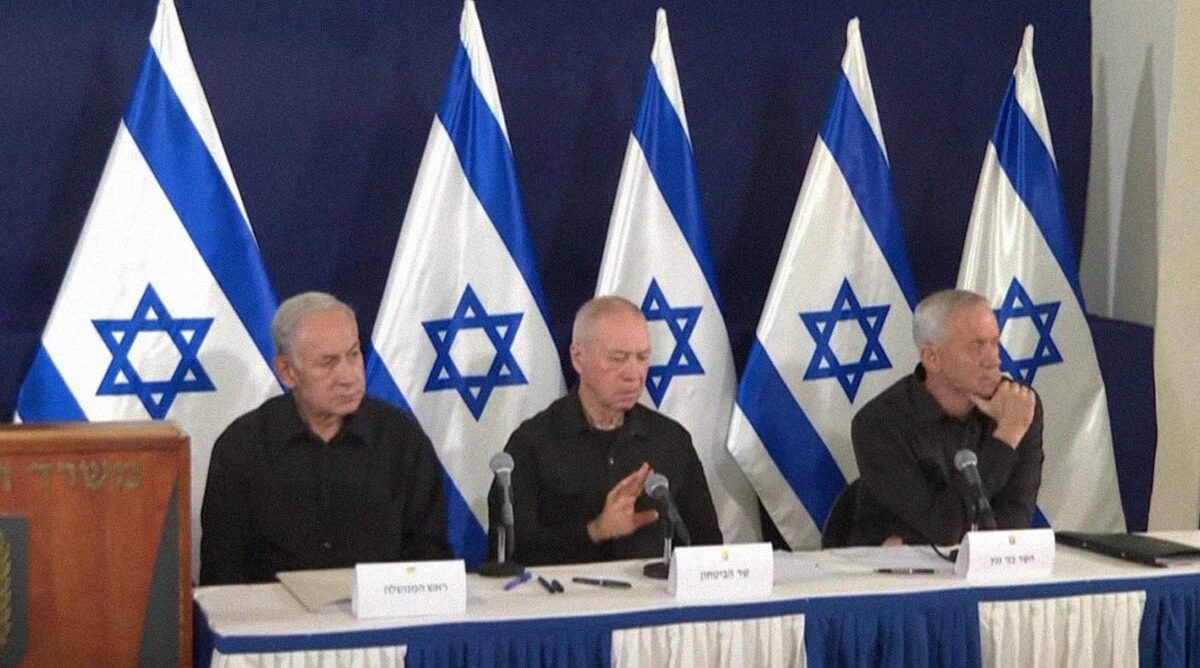In light of The Seventh Eye coverage on prime minister’s Benjamin Netanyahu boycott on the Israeli media, The Union of Journalists in Israel and the four heads of news departments at TV channels released a statement calling Netanyahu and members of the war cabinet demanding they "go public and address journalists' questions.”
"The prime minister gives many interviews to the foreign press, especially the American press. According to the data published in The Seventh Eye, since the beginning of the war, the prime minister gave 26 interviews to the foreign press in English and not a single interview to the Israeli press. Giving an opportunity to ask one or two questions during public appearances does not suffice as a substitute for proper interviews," read a statement signed by Nurit Canetti, the head of The Union of Journalists in Israel; Anat Saragusti, responsible for freedom of the press within the union together with Baruch Shay, head of the news unit at Israeli public broadcasting cooperation; Avi Weiss, the head of N12 News; Lior Landenberg, vice president of content at News 13 ; and Yoram Cohen, executive editor at channel 14.
"This disregard from the news media and the avoidance of giving answers to the Israeli public’s questions, in Hebrew, severely undermines the freedom of the press, the public's right to know and democracy in general," the statement emphasized.
On May 31, new information was published regarding the prime minister's handling of the situation, revealing that he has avoided holding press conferences for 64 days, despite being forced to do so one month after the war began. He last held a press conference on March 31, 2024, the same day he underwent surgery under general anesthesia. At the time this new information was published, Netanyahu's 26th studio interview abroad since the beginning of the war was broadcast in the US.
Netanyahu has been boycotting the Israeli press and has avoided giving interviews since 2021, avoiding the Israeli public broadcasting cooperation since 2019. Since the beginning of the war, he has refrained from giving interviews even to Channel 14, which supports him and is dedicated to echoing his messages. For a month after October 7th, Netanyahu only appeared in pre-recorded monologues, but then public pressure forced him to hold press conferences that allowed journalists to ask only a few questions.
However, more than two months have passed, and Netanyahu continues to reject appearing even in limited-format press conferences. Instead, he has reverted to communicating through 51 press releases with quotes on his behalf, 26 of which included video clips in a monologue format, similar to his communications at the beginning of the war.
"Publishing clips on social media," the statement continued, "can’t be a substitute for an interview where the prime minister or the cabinet’s ministers answer the questions that concern the public during these stressful times. Rare press conferences also can’t be an appropriate substitute for interviews with the prime minister or the ministers leading and managing this war."
The statement concludes with a demand for Netanyahu and the war cabinet ministers to "go out to the public and answer questions from the press. Steadfast public presence amidst the challenges of the crisis will derive, among other things, from clearing the air on what are the plans for the future." Alongside Netanyahu, the war cabinet ministers Yoav Gallant and Benny Gantz have also refrained from giving interviews to the press. The ministers Gadi Eisenkot, Aryeh Deri, and Ron Dermer are observers in the cabinet. While Eisenkot and Deri have given interviews, Dermer remains silent.
As in previous inquiries to Prime Minister Netanyahu's office regarding his continued boycott of interviews with Israeli news channels, even during times of war, this time too we did not receive any response or acknowledgment.









